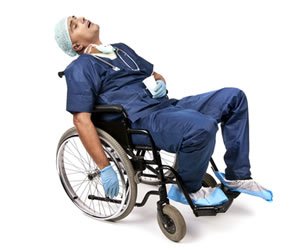When the 12 members of NASA’s 2017 Astronaut Candidate Class report to Johnson Space Center in Houston, TX for their two years of training, two of them—Dr. Jonny Kim and Dr. Frank Rubio—will leave behind medical careers for the chance to explore the final frontier. SDN recently spoke with Dr. Kim about his nontraditional path to medical school and his transition from emergency medicine resident to astronaut candidate.
Dr. Jonny Kim started his career in the US Navy, where he trained as a Navy SEAL and completed more than 100 combat missions, earning a Silver Star and a Bronze Star with Combat “V”. He earned a degree in mathematics at the University of San Diego and his MD at Harvard Medical School. He is currently finishing the intern year of his residency in emergency medicine at Massachusetts General Hospital. At the end of the two years of astronaut training, Dr. Kim and the other astronaut candidates could be assigned to any of a variety of posts furthering NASA’s mission.
Six Tips For A Successful Intern Year
Every July, freshly-minted doctors begin their first step as healthcare providers with their intern year. … Read more
















